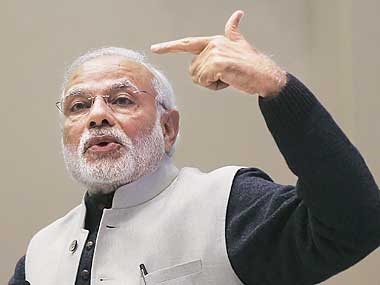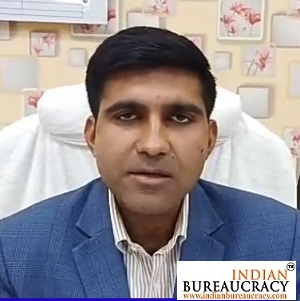The Prime Minister’s New 15 Point Programme for the welfare of minorities is an overarching programme, covering 24 schemes/ initiatives of 11 different Ministries / Departments implemented throughout the country, including Andhra Pradesh. In order to ensure that the benefits of various Government schemes flow equitably to minorities, this programme stipulates location of a certain proportion of development projects in minority concentration areas. It also provides that, wherever possible, 15% of targets and outlays under various schemes should be earmarked for minorities. Some of the schemes/ initiatives under this programme are exclusively for minority communities. The details of schemes / initiatives covered under the programme, being implemented in Andhra Pradesh since inception is:-
Details of schemes / initiatives covered under the Prime Minister’s New 15 Point Programme (PM’s New 15-PP):
(a) Schemes considered amenable to earmarking of 15% for minorities:
i. Sarva Shiksha Abhiyan (Ministry of Human Resources Development);
ii. Integrated Child Development Services (ICDS) Scheme providing services through Anganwadi Centres (Ministry of Women & Child);
iii. National Rural Livelihood Mission (NRLM) (erstwhile Swarnjayanti Gram Swarojgar Yojana / Aajeevika) (Ministry of Rural Development);
iv. National Urban Livelihoods Mission (NULM) (erstwhile Swarn Jayanti Shahari Rojgar Yojana) (Ministry of Housing & Urban Poverty Alleviation);
v. Industrial Training Institutes (ITIs) (Ministry of Skill Development and Entrepreneurship);
vi. Bank credit under priority sector lending (Department of Financial Services);
and
vii. Indira Awaas Yojana (IAY) (Ministry of Rural Development).
(b) Schemes for minorities implemented by the M/o Minority Affairs (100% Budget provision meant for minorities):
i. Pre-Matric Scholarship scheme;
ii. Post-Matric Scholarship scheme;
iii. Merit-cum-Means Scholarship scheme for technical & professional courses;
iv. Maulana Azad National Fellowship for Minority Students;
v. Loan schemes of National Minority Development & Finance Corporation (NMDFC) for economic activities;
vi. Schemes of Maulana Azad Education Foundation (MAEF) for promotion of education; and
vii. Free Coaching and Allied scheme.
(c) Schemes for which flow of funds to minority concentration areas is quantified:
Integrated Housing and Slum Development Programme (IHSDP) (Ministry of HUPA);
i. Basic Services for Urban Poor (BSUP) (Ministry of HUPA);
ii. Urban Infrastructure Development Scheme for Small and Medium Towns (UIDSSMT) (Ministry of Urban Development);
iii. Urban Infrastructure and Governance (UIG) (Ministry of Urban Development); and
iv. National Rural Drinking Water Programme (NRDWP) (Ministry of Drinking Water & Sanitation).
(d) Special Initiatives for welfare of minorities:
i. Scheme for Providing Quality Education in Madarsa (SPQEM) (Department of School Education & Literacy);
ii. Scheme for Infrastructure Development of Minority Institutions (IDMI) (Department of School Education & Literacy );
iii. Greater Resources for Teaching Urdu – Scheme for Appointment of Language Teachers (Deptt. of School Education & Literacy);
iv. Recruitment of minorities in Govt. Departments/ Organizations (Deptt. of Personnel & Training); and
v. Guidelines on communal harmony (Ministry of Home Affairs).
The programmes/ schemes under Prime Minister’s New 15 Point Programme for the Welfare of Minorities (PM’s New 15-PP) are being implemented by various Ministries/ Departments administratively concerned with implementation of those programmes/ schemes. Many of these schemes are being implemented through the State Governments / UT Administrations. Ministry of Minority Affairs, being the nodal Ministry for implementation of the PM’s New 15-PP, monitors and reviews these programmes. The schemes / programme are reviewed in the Ministry of Minority Affairs on quarterly basis with the nodal officers of the concerned Ministries / Departments for effective implementation of schemes. The shortfalls, if any, are pointed out and the concerned Ministries/ Departments are advised to take remedial actions to ensure that the targets are achieved. The progress of schemes is also reported to the Committee of Secretaries and the Cabinet.





